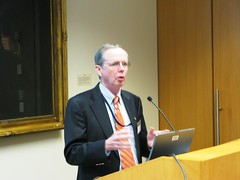The IMF Fiscal Affairs Department (FAD) is looking for candidates to work in a project on public sector cost accounting in the State of Sao Paolo, Brazil. The project aims to improve the budget preparation, budget execution, and cost control at the state level. We are looking for highly-qualified public sector cost accounting experts for two assignments: (i) a long-term assignment (one year, renewable for one more year); and (ii) a short-term peripatetic assignment (a two-week visit every quarter during two years). The assignments are in Sao Paulo, Brazil. It is expected that the short-term expert will be a leader in his field and have a strategic guidance role in the project, while the long-term expert will work more intensively on the implementation of the project with Brazilian counterparts.
The objectives of the project are to (i) implement the public cost system in phases, starting with four pilot entities (health, education, prisons, and social assistance); (ii) develop a cost methodology adequate to the public services at the state level; (iii) organize seminars, courses, and other training events to educate the state officials on how to prepare and use cost information; (iv) document the cost methodology used in the existing projects; (v) prepare guidelines for external dissemination of cost data; and (vi) prepare progress reports.
The State of Sao Paolo will create a unit in the Secretary of Finance dedicated to implementing the project. The authorities are also enrolling the University of Sao Paolo to provide support on capacity building and research methodology. The consultants will work directly with this unit and in collaboration with the University.
The State of Sao Paolo has some similarities with US states because Brazil is also a federation. Sao Paolo relies strongly on its own tax resources to implement local policies, and is responsible for the provision of the main public services (education, health, police, etc.). The State has well-functioning integrated financial management information system (IFMIS). The State of Sao Paulo has a population of more than 40 million people and an economy of the size of Argentina. It is indeed a nice place to work and live.
The positions are funded by the State of Sao Paolo itself through a Trust Fund administered by the IMF. The IMF will provide guidance and support (“backstopping”) to the consultants during the entire project, and introduce and support the consultants during the kick-off phase.
Qualification requirements include at least ten years of relevant professional experience, including in cost accounting in the public sector. The ideal candidates would have a degree in accounting, business management, or economics. Portuguese language skill is a plus but it is not a requirement. Fluency in Spanish or English is also acceptable.
The deadline for applications is September 30, 2010. Please send your CV to Mr. Mario Pessoa (mpessoa@imf.org) indicating if you are applying for the short-term or long-term position.
The objectives of the project are to (i) implement the public cost system in phases, starting with four pilot entities (health, education, prisons, and social assistance); (ii) develop a cost methodology adequate to the public services at the state level; (iii) organize seminars, courses, and other training events to educate the state officials on how to prepare and use cost information; (iv) document the cost methodology used in the existing projects; (v) prepare guidelines for external dissemination of cost data; and (vi) prepare progress reports.
The State of Sao Paolo will create a unit in the Secretary of Finance dedicated to implementing the project. The authorities are also enrolling the University of Sao Paolo to provide support on capacity building and research methodology. The consultants will work directly with this unit and in collaboration with the University.
The State of Sao Paolo has some similarities with US states because Brazil is also a federation. Sao Paolo relies strongly on its own tax resources to implement local policies, and is responsible for the provision of the main public services (education, health, police, etc.). The State has well-functioning integrated financial management information system (IFMIS). The State of Sao Paulo has a population of more than 40 million people and an economy of the size of Argentina. It is indeed a nice place to work and live.
The positions are funded by the State of Sao Paolo itself through a Trust Fund administered by the IMF. The IMF will provide guidance and support (“backstopping”) to the consultants during the entire project, and introduce and support the consultants during the kick-off phase.
Qualification requirements include at least ten years of relevant professional experience, including in cost accounting in the public sector. The ideal candidates would have a degree in accounting, business management, or economics. Portuguese language skill is a plus but it is not a requirement. Fluency in Spanish or English is also acceptable.
The deadline for applications is September 30, 2010. Please send your CV to Mr. Mario Pessoa (mpessoa@imf.org) indicating if you are applying for the short-term or long-term position.





